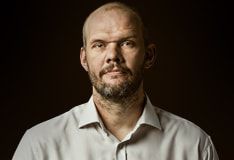Advances in medicine mean we are living longer than ever before, and our chances of survival following devastating, life-changing events are higher than they ever have been. However, our quality of life is not currently improving to match this increased life-span.
The Healthcare Technologies Institute (HTI) is changing the landscape of healthcare. The Institute is accelerating 21st century innovations to improve healthcare, advancing state-of-the-art technologies and treatments that encourage better tissue healing, quicker detection of diseases, and better rehabilitation tools, to enable people to lead longer, healthier and happier lives.

Minimising life-altering scars
65% of trauma victims suffer from problematic scarring, some of which can remain for the rest of their lives. Wounds to the surface of the body, as a consequence of trauma or disease, can cause significant problems through infection or long-term deformity through scarring.
Trauma researchers at the University and the National Institute for Health Research Surgical Reconstruction (NIHR) and Microbiology Research Centre (SRMRC) have also created a biomembrane dressing using the molecule Decorin which they hope will prevent scarring in injured tissue. The dressing can be freeze dried, allowing it to be stored and manipulated by surgeons without damage, before being rehydrated with saline ahead of use. This novel property means that it could even be used by soldiers on the battlefield, keeping a dressing in their kit with a sachet of saline for use in an emergency. The dressing is being tested on burns patients at Queen Elizabeth Hospital Birmingham (QEHB), in a three-year clinical trial after the team were awarded a £1.6 million grant from the Wellcome Trust to fund the research.
Birmingham Heroes: Professor Liam Grover
3D printing prosthetics
3D metal printing, also known as additive manufacturing, is a healthcare revolution. It removes many of the limitations seen in more traditional healthcare manufacturing methods, and opens up the possibilities for innovations that are both structurally and medicinally customised to the patient.
The Centre for Custom Medical Devices, in collaboration with engineering company Renishaw, brings together multidisciplinary expertise to create a new generation of innovations to enhance patients’ quality of life. The Centre will enable the translation of research from the lab to market-ready technologies and products, so that the manufacturing industry can apply this research to create customised medical devices that benefit patients. Research at the Centre will grow the impact of the University’s additive manufacturing healthcare developments and cultivate new industrial partnerships.
Birmingham Heroes: Professor Sophie Cox
Acceleration of novel medical innovations
The Healthcare Technologies Institute is located in the Institute for Translational Medicine (ITM), a facility on the site of the Queen Elizabeth Hospital that acts as a central hub for clinical trials acceleration and stratification and clinical informatics, boosting the Life Sciences community in Greater Birmingham and Solihull.
Research at the HTI is conducted in collaboration with University Hospitals Birmingham NHS Foundation Trust (UHB) and the Medical Devices Testing and Evaluation Centre (MD-TEC) (funded by the European Regional Development Fund). Research supports the development of existing markets and aims to stimulate new markets for small and medium sized Life Sciences businesses, enabling them to bring products to market quickly, at a lower cost, with reduced risk.
Antimicrobial resistance
Antibiotic resistance is one of the biggest challenges facing mankind. Researchers at the Healthcare Technologies Institute are helping to increase life expectancy by finding new ways to combat antibiotic resistance to fight infections globally.
A new spray device to fight superbugs is being developed by Professor Liam Grover, Dr Sophie Cox and PhD student Thomas Hall, in collaboration with Matoke Holdings Ltd, inventors of Reactive Oxygen® technology. The efficacy of the device takes inspiration from nature, using a chemical found in honey. The team are engineering this chemical in novel ways to deliver it in a controlled manner such that it can be applied to different parts of the body, and combat infections.
Early detection of prostate cancer
Prostate cancer is one of the most common types of cancer in men and claims over 10,000 lives in the UK every year. By 2030, prostate cancer is set to become the most common cancer overall in the UK. Detecting cancer at an earlier stage is critical in allowing for more treatment options.
Researchers at the Healthcare Technologies Institute are investigating rapid, real-time chemical and biological detection methods that will allow clinicians to make important decisions and improve long-term outcomes for people with prostate cancer.
New research undertaken by Professor Paula Mendes has shown how a smart sensor chip, which is able to pick up on subtle differences in glycoprotein molecules, can improve the accuracy and efficiency of prostate cancer diagnosis.
A breakthrough test for brain injuries
Injuries to the brain are currently impossible to detect at the scene of an accident, which can prove fatal for people with brain injuries who do not get diagnosed until hours later. Dr Pola Goldberg Oppenheimer, alongside researchers at the HTI and the Queen Elizabeth Hospital, created the first blood test for brain damage in 2016, using sensors that are capable of detecting the tiny amounts of chemicals produced when damage has occurred. They are working on a device which will be briefcase-sized and easy to keep in an ambulance, at a sports ground, or even in an army vehicle on a battlefield.
Developing greater insight into the brain
The Healthcare Technologies Institute is also developing greater insight into the brain, through Professor Hamid Dehghani’s work which applies physics to medicine in order to non-invasively image the body. Professor Dehghani leads BitMap (Brain injury and trauma monitoring using advanced photonics), an innovative new Horizon 2020-funded project, which is developing a suite of lightbased non-invasive devices that can provide essential information about brain health. The project aims to improve the treatment and care of those suffering from traumatic brain injury (TBI) and neonates with brain injury from pregnancy or birthing complications.

Director of the Healthcare Technologies Institute

Lecturer in Healthcare Technologies

Professor of Medical Imaging

Reader in Micro-engineering and Bio-nanotechnology and Royal Academy of Engineering Research Fellow
Find out more
Life Sciences Park ➤
Institute of Translational Medicine (ITM) ➤
Healthcare Technologies Institute Research ➤
New Medical Devices Testing and Evaluation Centre launched ➤
Centre for Custom Medical Devices will create a new generation of 3D healthcare innovations ➤
New method for tissue regeneration, inspired by nature, described by scientists ➤
Life Sciences in Six – how can sugar be used to treat burns? (Video) ➤
The Scar Free Foundation Centre for Conflict Wound Research ➤
Learn about our other Birmingham Heroes ➤